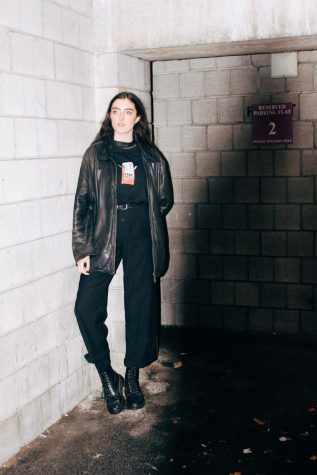Shop Ethically and Support Fashion Startups
May 3, 2020

When considering one’s habits of self-care, exercise, healthy eating habits, and hygiene are all central facets of keeping oneself presentable, but I would argue that keeping fashionable is as essential as keeping fit when it comes to maintaining a positive self-image. While an individual’s sense of fashion is so subjective from person to person, there is one matter that should always be considered, no matter if your wardrobe is preppy or contemporary; the ethics of fashion should be valued as highly as the presentation or the price tag.
It is no secret that an incredible proportion of consumer goods in the United States are imported from foreign countries who use cheap, and often unethical labor to mass produce products while still holding a steady profit margin. This has been true for decades, yet it seems that these major outlets like H&M and Forever 21 are still finding immense success cashing in on seasonal fashion trends and the willingness of consumers to buy poorly-made clothing that doesn’t last through the summer. But in an age of social media and worldwide connectivity, alternatives are available which will actually satiate the needs of buyers without supporting morally indignified production practices.
By supporting small fashion brands and startups, every shortcoming that is posed by giant fast-fashion companies is taken care of, while the subsequent drawbacks are shockingly slim. In terms of labor, the improvement is unquestionable. An estimated 168 million children between the ages of 5 and 14 are forced to work in sweatshops, according to the International Labor Organization, a practice which big-name clothiers actively engage in. On the other hand, the labor of startup brands, due to size and access, is almost exclusively limited to the designers themselves, or a small group of individuals consensually making the items. This not only ensures that people are not being taken advantage of in the creation of an item, it also maintains a certain level of labor quality, as laborers are more likely to be skilled and materials are less cheap.
Even if one was to remove themselves from the matter of labor rights, it is still invariably more conducive to the economy to support small businesses than to shovel more fuel into behemoth fashion manufacturers. Many of these startup brands are owned and operated by a small handful, or often, a single person. By making the choice to shop with small businesses, you are supporting the notion that markets ought to be accessible, and not dominated by a handful of big name figures.
If the case for small fashion brands has not swayed one over on the basis of moral righteousness, then these brands ought to be supported simply for the creative utility which they serve. Small brands are more likely to push bold, exciting new designs than companies at the center of a shopping mall simply wouldn’t. This is because of the greater creative control which designers have in startups compared to their larger competitors. In short, these brands create far cooler items than any fashion chain is choosing to make. So if you are willing to give up frequent trips to the mall for a seven dollar t-shirt and willing to pay a slight premium for well-made, ethical, and stylish clothing, do some searching and there is surely a fashion startup that needs your support.
